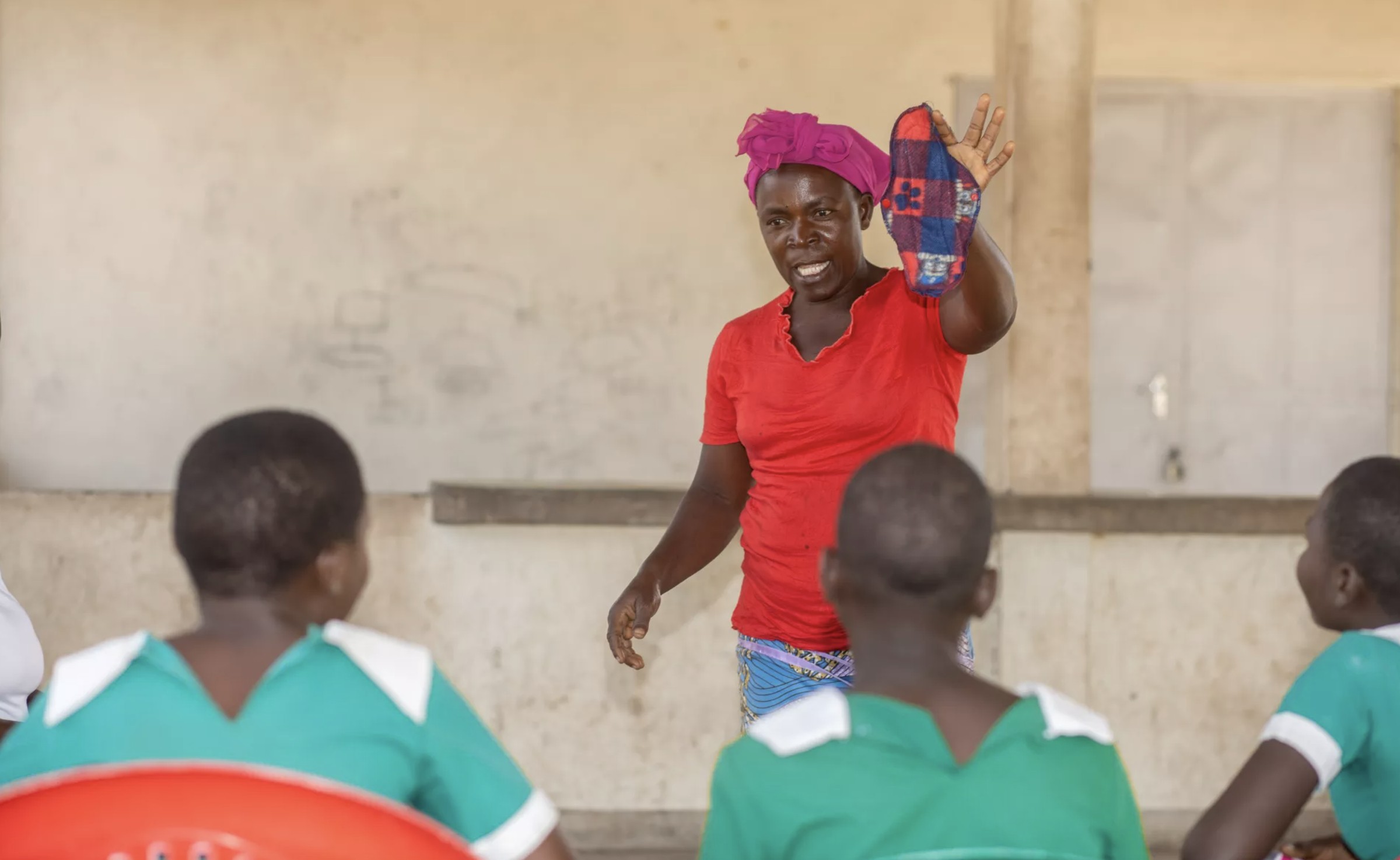© UNICEF Malawi/2022/HD Plus
“Old ways won’t bring new results for our children,” says Catherine Malasha, the chairperson of Namalindi Mother Group in Chikwawa.
The 49-year-old mother of one girl and three boys regrets quitting school in Standard Eight in the 1990s when girls were under no pressure to learn and menstruation was a cause for shame.
She has become a fierce campaigner for every child to learn and achieve their full potential.
Catherine and her group go door to door in villages surrounding Namalindi Primary School in Chikwawa District, southern Malawi, urging girls to speak their minds and not lag behind when it comes to lifelong learning.
“I want girls to dream big and meet their potential,” she states. “Education is the only trigger for them to take the future in their hands without relying on men or engaging in risky sexual activity that fuel school dropout rates, early pregnancies, child marriages and sexually transmitted diseases, including HIV.”
But there was a problem. Some girls in her area used to skip classes and others quit schooling due to widespread stigma and gaps in menstrual health and hygiene.
“Girls cannot take decision-making positions in society if they continue to drop out due to lack of basic facilities for managing natural processes they can’t pause like music,” she states.
In March 2022, Catherine was among the mother group leaders and teachers trained in menstrual health management with support from UNICEF Switzerland through UNICEF Malawi. The training tackled taboos and barriers that push girls out of school during the monthly periods.
“It opened my eyes not to keep menstruating girls at home, but to help them understand their body changes and maintain personal hygiene to keep learning as usual. We urged parents and teachers to send the girls to school without fail,” she explains.
The volunteer beams with joy to see girls learning all day “without having to rush home to change pads” as she did in the 1980s when Namalindi Primary School had no changing room.
“Girls at our school now ultilise a standalone changing room that was lying idle. Previously, many girls were shy and terrified to come to school during monthly periods. They were afraid of a backlash from boys who didn’t understand that this is normal during puberty,” she narrates.
After the training, Catherine swiftly met girls to give them tips on how to maintain bodily hygiene both in school and at home. She also convened boys for a pep talk on their body changes, persuading them to stop hurting the self-esteem of girls in puberty and instead support them to beat the menstrual pains.
“Since then, boys no longer jeer at girls when they notice bloodstains. They have become our trusted allies in keeping girls in school. They now restrain each other,” she states.
Phales Ng’oma, secretary of the mother group, says it is pleasing that the deep-rooted culture of silence and discrimination is fading.
“As mothers, we are happy to help boys and girls support each other to learn and rise together. They are our children and we are their primary caregivers,” she reasons.
Having learnt at Namalindi from Standard One to Eight, she finds it breathtaking that children freely discuss menstrual health issues regardless of age or gender.
“This is astonishing. In my time, it was unthinkable to discuss this in public. Most girls used to fail simple tests because they had missed several classes due to menstruation which was a cause of shame both in school and at home,” she reminisces.
“I look after adolescent girls to maintain hygiene so that no one misses lessons due to shame caused by menstruation. I urge them to seek assistance when the need arises and I’m pleased that they are increasingly opening up to teachers and peers,” says Linda Taliyana, the teacher who coordinates menstrual health affairs at the rural school.
The changing room has become a go-to place for girls at the school with 990 learners. There are nine pit latrines for all 493 girls and five for 407 boys.
“The changing room is complete with buckets of water from the borehole and soap. We tidy up without leaving any clues, unlike early last year when I experienced my first period in class. I had had nowhere to run and no one to turn to. All eyes were on me,” says Alice Mwambeni, 14.
The Standard Seven girl received five reusable sanitary pads from UNICEF. She dreams of becoming a teacher like her father.
To learn more, visit https://www.unicef.org/malawi/stories/mothers-march-menstrual-health.
© UNICEF Malawi
© Copyright The Hamels Foundation DBA Uplift Malawi 2024 | EIN #26-3128059 | all rights reserved | legal | site credit
